Can You Freeze Basil?
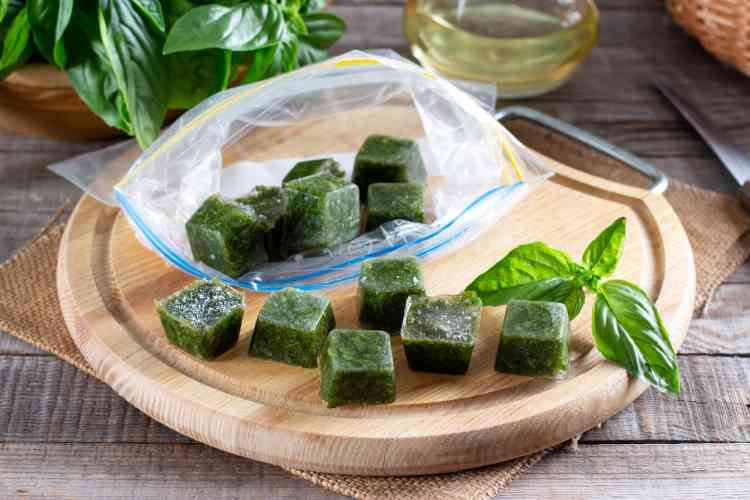
Perhaps you have too much fresh basil grown from your garden or you do not need to use all of it straight away, therefore you ask yourself, "can you freeze basil?" The answer to this is a resounding yes, and before you ask, you do not have to turn it into pesto to make use of the leftover basil. In fact, there are many different ways to freeze basil, which is why in this article we'll go through everything you should know to answer whether you can freeze basil.
Can Basil Be Frozen?
If you’re wondering whether you can freeze basil, the answer is yes. Basil can be frozen, and you don’t necessarily need to turn it into pesto. Having said that, why wouldn’t you? The point is that you can freeze basil, and there are lots of different ways to do so.
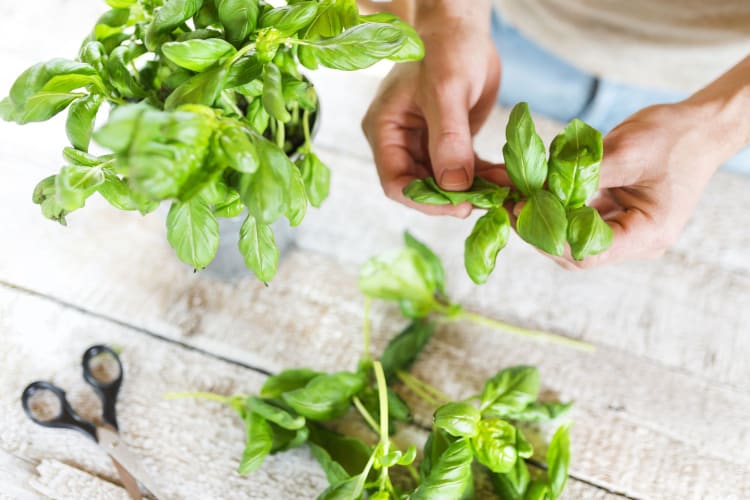
Can You Freeze Fresh Basil?
You can freeze basil fresh in multiple ways, and different people have their own favorite way of doing so. Some prefer to blanch their basil first, others pack theirs with sea salt in airtight containers. Pesto is another popular means of preserving fresh basil, as is freezing with olive oil, in ice cube trays and by flash-freezing on trays before storing in freezer bags.
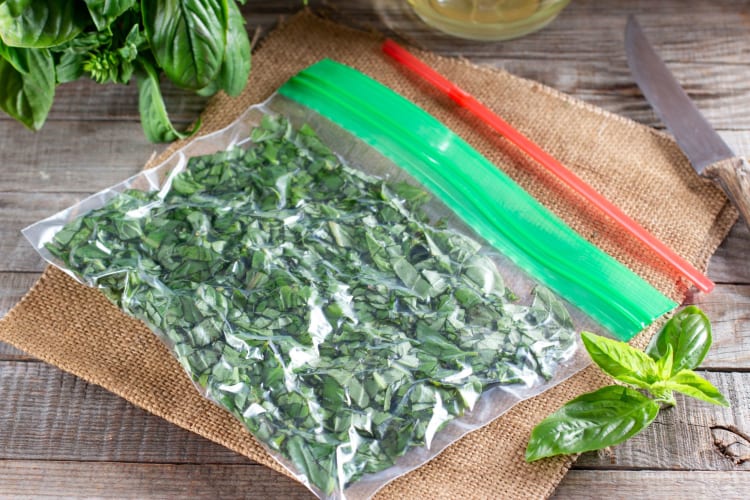
Can You Freeze Basil Leaves?
Basil leaves can indeed be frozen. But you do not need to blanch the basil. You can pack the leaves in sea salt in an airtight food storage container. The leaves keep their color and the flavor does not become dominated by the salt.
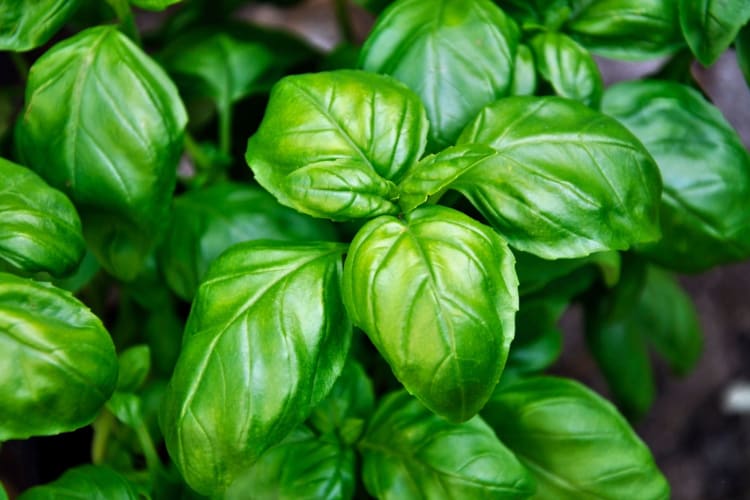
Can You Freeze Basil Pesto?
Those of you asking “can you freeze basil?” may also wondering whether you can freeze pesto, which is made with basil. Arguably the best way to freeze basil, a frozen pesto base will mean you can use the basil for over a year. Firstly, use a food processor to combine the clean basil leaves with a quarter of a cup of olive oil (with two cups of basil leaves) and a little salt. Add garlic, Parmesan and nuts, decant it into a sealed container and then simply freeze it!
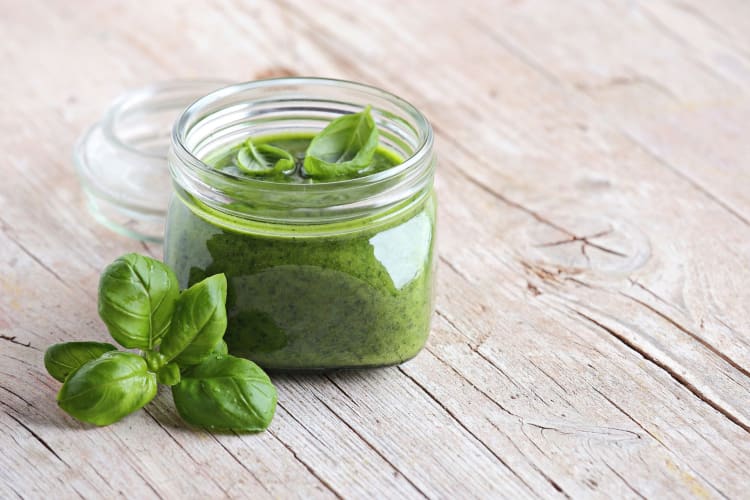
How To Freeze Basil
There are some things to consider before you can freeze basil. Firstly, if you have fresh basil from your garden, you’ll want to pinch off the leaves, follow best practices as to how to sustain the plants (such as harvesting in the morning) and discard the stems. Then, you will want to wash the basil leaves with cold water, before drying them in a salad spinner or with paper towels.
If you do not want to chop them (aside from the stems), you will want to place them onto a cookie sheet to flash-freeze the leaves. If you’ve never cut basil before, you may be wondering “what type of knife do you use for basil?” You might want to use a food processor instead to chop fresh basil for pesto.
Another method to consider before freezing basil is to blanch the leaves. Start by boiling water and then making an ice bath. Place the basil leaves for 30 seconds in the boiling water and then place straight into the ice bath. Next, pat them dry, roll them up and freeze.
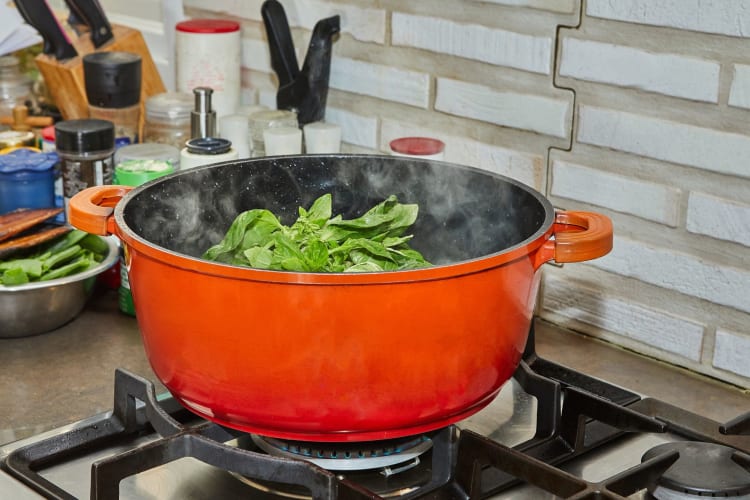
How To Freeze Basil in Olive Oil
You can indeed freeze basil with olive oil, and it's a great way to preserve the leaves. Simply follow the steps above to wash and dry the leaves, then chop the stalks. For every three cups of basil, toss with two tablespoons of olive oil, store the leaves in sterlised, sealed tubs and place in the freezer. You can also add your basil and olive oil to a blender and have your favourite pesto base in moments! This can be frozen as it is, or mixed with the other requisite ingredients and frozen as a ready-to-eat pesto. Just remember to thaw it first!
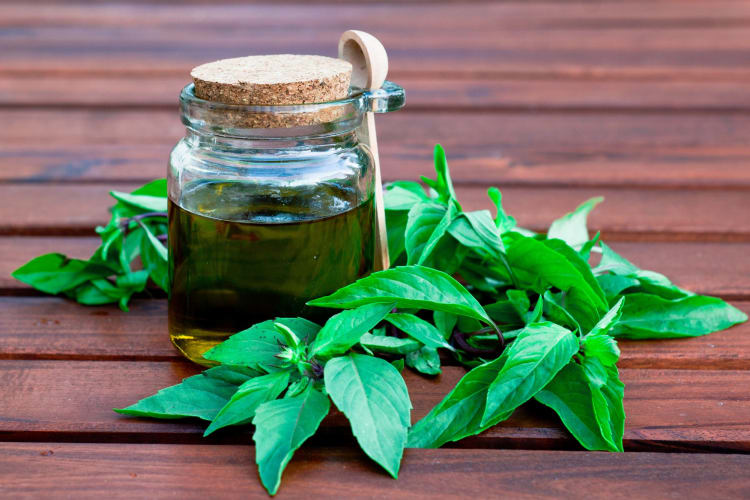
How To Freeze Basil in Ice Cube Trays
Another technique with which you can freeze basil is by using ice cube trays, saving the need to blanch your basil first. This technique involves leaving your basil in ice cube trays with olive oil. First, chop the basil. Combine two tablespoons of olive oil with every three cups of basil, blend into a puree, then use it to fill your ice cube tray before placing it in the freezer. The basil will turn black, however, the taste will stay the same, ideal for later use in cooked dishes requiring basil.
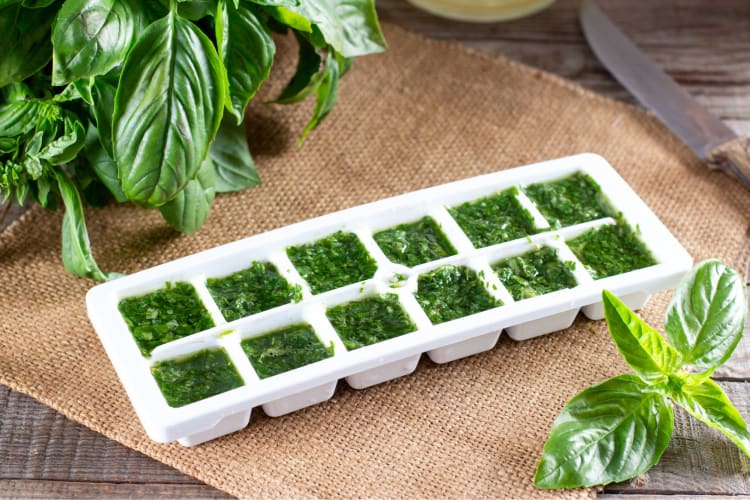
How To Freeze Basil Leaves Without Blanching
As explained above, you can freeze basil by blanching it first. However, this method is time-consuming and does not always maintain the color well. There is a non-blanching method that involves placing your basil on trays to freeze for half a day, then putting the leaves in freezer bags.
This method works, but it’s far simpler and effective to wash and dry the basil leaves as directed above, then place them in freezer bags straight away. You’ll want to remove as much air from the bags as possible by pressing on them before you seal and freeze them. It’s the perfect way to freeze fresh basil leaves and doing so means that you can freeze basil whilst retaining those beautiful fresh colors and flavors.
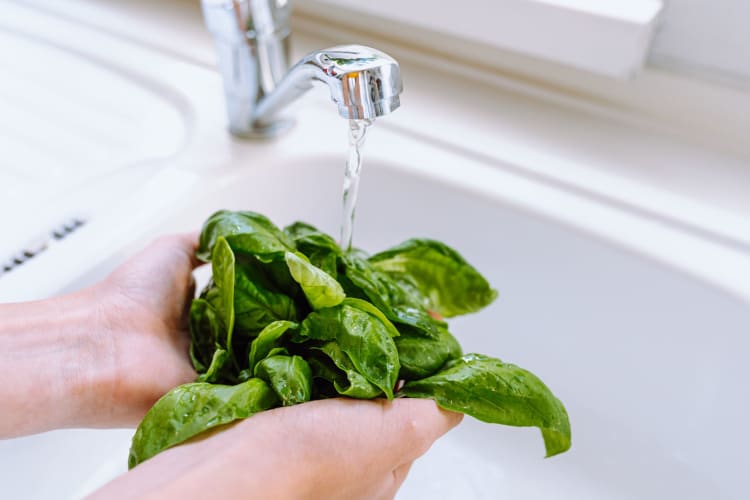
How Long Can You Freeze Basil?
It is recommended that you keep basil in the freezer for no more than three months. That’s plenty of time to use your frozen crop, especially for those who love pesto, adding three months of edibility to this annual plant’s delicious leaves.
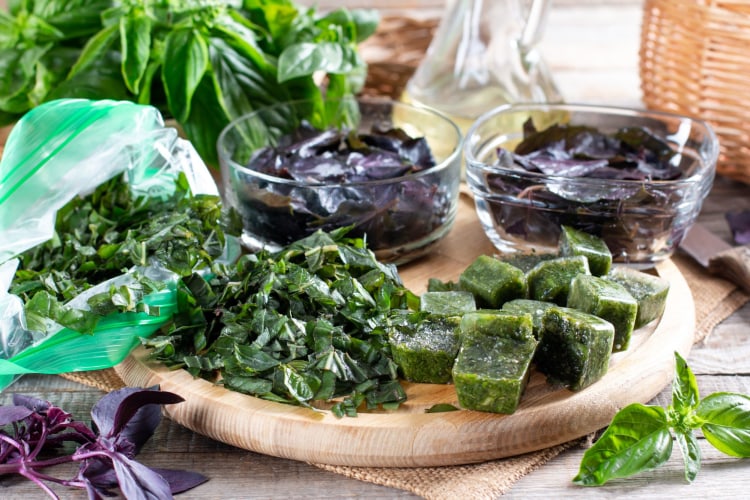
How To Use Frozen Basil
So, good news — you can freeze basil! There are plenty of recipes perfect for frozen basil, too. You can add the frozen basil leaves to pasta sauces, such as marinara sauce or bolognese, make it an addition to salad dressings or use the basil leaves to make your own pesto. It’s also a great addition to Thai beef stir fry, and absolutely key to this delicious vegan eggplant Parmesan recipe. If you're looking for more ways to make the most of this wonderful ingredient, cooking classes near you and online cooking classes are a great way to wow your future guests with new-found culinary flare.
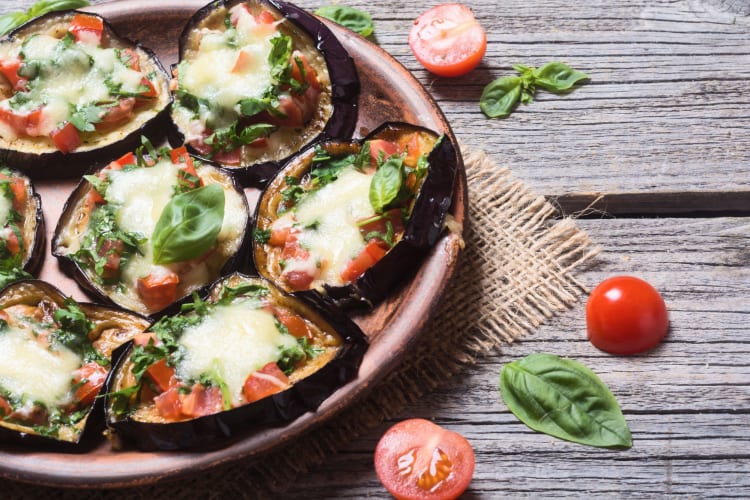
How To Defrost Frozen Basil
If you want to add basil to a hot dish, simply put it directly in the pot, tray or pan. There is no need to thaw it this way. Alternatively, you can defrost your frozen basil in the fridge overnight for use as a topping on dishes such as pizza, or if you've frozen it as a pesto base, allow it to thaw in the fridge before adding it to a blender with Parmesan and nuts to finish.
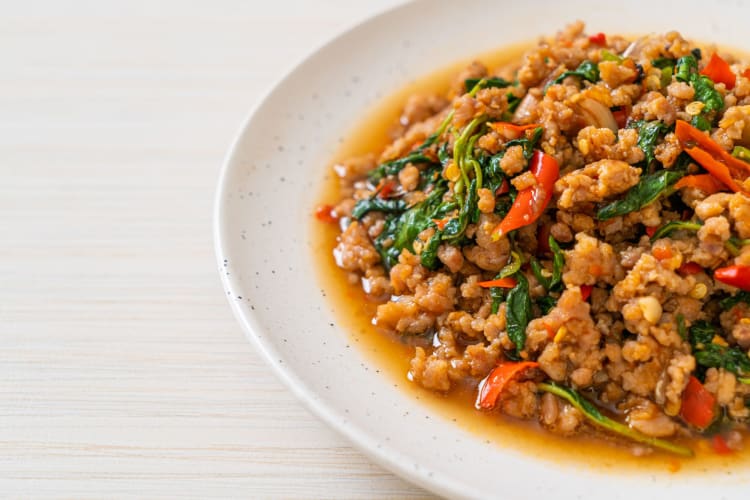
Hopefully, now that you know you can freeze basil and are armed with all the information you need, from how to freeze it to some of the amazing recipes you can use it with, you’re ready to go ahead and start making the most of your freezer space. Whether you bought too much from the store, or are wondering how you're going to use the abundance of beautiful leaves that your basil plants have grown, it's reassuring to know that you can freeze them for later and enjoy your favourite warm-weather herb for months to come.
For even more ways to explore your favorite foods, check out other experiences happening on Cozymeal.
